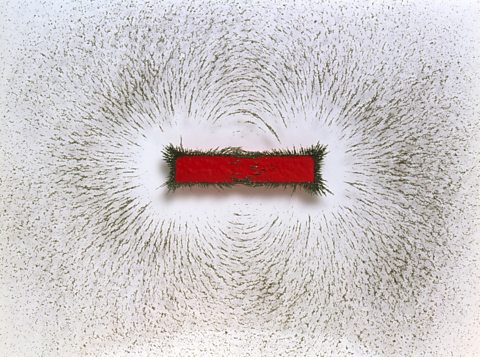Magnetic fields

A magnetic fieldArea surrounding a magnet that can exert a force on magnetic materials. is the region around a magnetAn object capable of exerting a magnetic force. where a force acts on another magnet or on a magnetic material. Iron, steel, cobalt and nickel are all magnetic materials and would feel force from a nearby magnet.
Detecting magnetic fields
A magnetic field is invisible, but it can be detected using a magnetic compass. A compass contains a small bar magnet on a pivot so that it can rotate. The compass needle points in the direction of the Earth's magnetic field, or the magnetic field of a magnet.
Magnetic fields can be mapped out using small plotting compassSmall magnetic compass used to detect magnetic fields.:
- place the plotting compass near the magnet on a piece of paper
- mark the direction the compass needle points
- move the plotting compass to many different positions in the magnetic field, marking the needle direction each time
- join the points to show the field lines
The needle of a plotting compass points to the south poleIn a magnet, the end that is attracted to the Earth's magnetic south pole. of the magnet.
The behaviour of a compass shows that the Earth has a magnetic field. The Earth's core, which is made from iron and nickel, produces this magnetic field.
Drawing a magnetic field
The diagram shows these key features:
- the magnetic field lineAn imaginary line which indicates the direction of force caused by a magnet. An arrow on the line shows the force direction on a magnetic north pole, so points from north to south. never cross each other
- the closer the lines, the stronger the magnetic field (so the magnetic field from a bar magnet is strongest closest to the poles)
- the lines have arrowheads to show the direction of the force exerted by a magnetic north poleIn a magnet, the end that is attracted to the Earth's magnetic north pole.
- the arrowheads point from the north pole of the magnet to its south pole